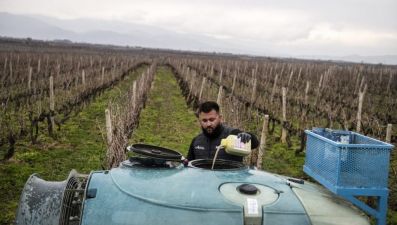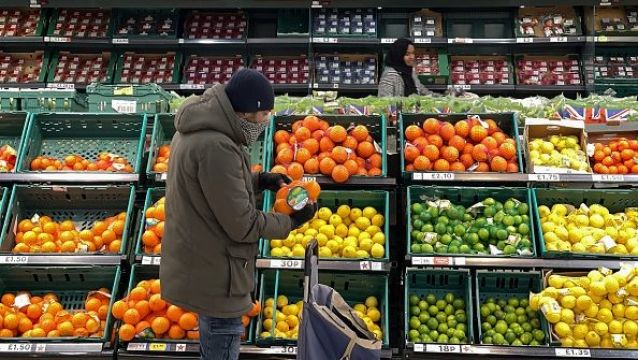Irish retailers have expressed concern about a shortage in availability of certain fruit and vegetables with salad items such as tomatoes, peppers and cucumbers proving harder to source due to poor weather conditions in Spain and North Africa.
Growers and suppliers in Morocco have had to contend with cold temperatures, heavy rain, flooding and cancelled ferries over the past three to four weeks – all of which have affected the volume of fruit reaching Ireland.
Supplies from Ireland’s other major winter source, Spain, have also been badly affected by weather.
Production problems in Morocco began in January with unusually cold night-time temperatures that affected tomato ripening.
These were compounded by ferry cancellations due to bad weather, hitting lorry deliveries.
Producers have also reported having to cut back on their use of greenhouses due to higher electricity prices.
However, Irish and northern European producers are beginning to move into their growing season, which is expected to ease the longer term situation as retailers also look to alternatives to produce from Spain and northern Africa.
Freezing temperatures
Justin Leonard, managing director of Jackie Leonard and Sons, a wholesale fruit and vegetable supplier in Dublin, told RTÉ radio that Spain has experienced "16 consecutive nights of below freezing temperatures over the last three weeks."
Mr Leonard said when temperatures reach freezing plants stop producing and close in on themselves as a protective measure.
"As a result there is just no product available to be harvested. This is unfortunately a problem that is going to continue to go on for another two to three weeks if not longer because unfortunately we are also coming towards the end of the Spanish season.
"In the winter months the bulk of all the produce we would eat in Europe would come from Spain and in the summer months the produce would come from Holland, the UK and ourselves Irish, or local produce, as we call it."
Mr Leonard, whose family business celebrated its 130th year in operation in December 2022, said there is normally a nice cross-over between the seasons in terms of supply. However, this year retailers are facing issues in sourcing.
"The Spanish season would generally end around the end of March. And the Dutch season would start in early April coming in to May. But unfortunately this year due to the energy crisis the Dutch growers are unfortunately not heating their glass houses earlier than they would in order to get their product to market quicker. It is just simply not viable to do so.
"We are coming to the end of the Spanish season but unfortunately the Dutch season isn't going to start on time and if anything will start a little later."
Seller's market
He added that impacted items include broccoli, cauliflower, lettuce, tomatoes, cucumbers, peppers, aubergines and courgettes.
"I could go on and on and on. Unfortunately we don't have anywhere else to turn to in order to supplement supply. It is a sellers' market. So the growers and producers do have a certain amount but the demand is not suppliable. And therefore the prices go up.

"And where product is available the quantities required to keep everybody happy are just not there. As a result we have seen a nearly 300 per cent increase in the cost of basic items like peppers. And that goes all the way down to the consumer, your local restaurant, cafe, supermarket, your local corner shop or greengrocer."
Mr Leonard said Irish winter vegetables were also more scarce this year because of poor weather conditions.
"Prior to Christmas we had about nine days consecutive days of temperatures from zero to minus five degrees. So our own product – the likes of celery, carrots and cabbage – they weren't growing. Also, because of the extremely dry and hot summer we had last year, yields are down.
"So we are down about 30 per cent on potato crops, we are down between 25 and 30 per cent on carrot crops. So in turn we don't have our own produce to fall back on. You can see from the weather coming up that it might be nice weather for making stew but unfortunately you might be stuck for a carrot." – Additional reporting: PA







